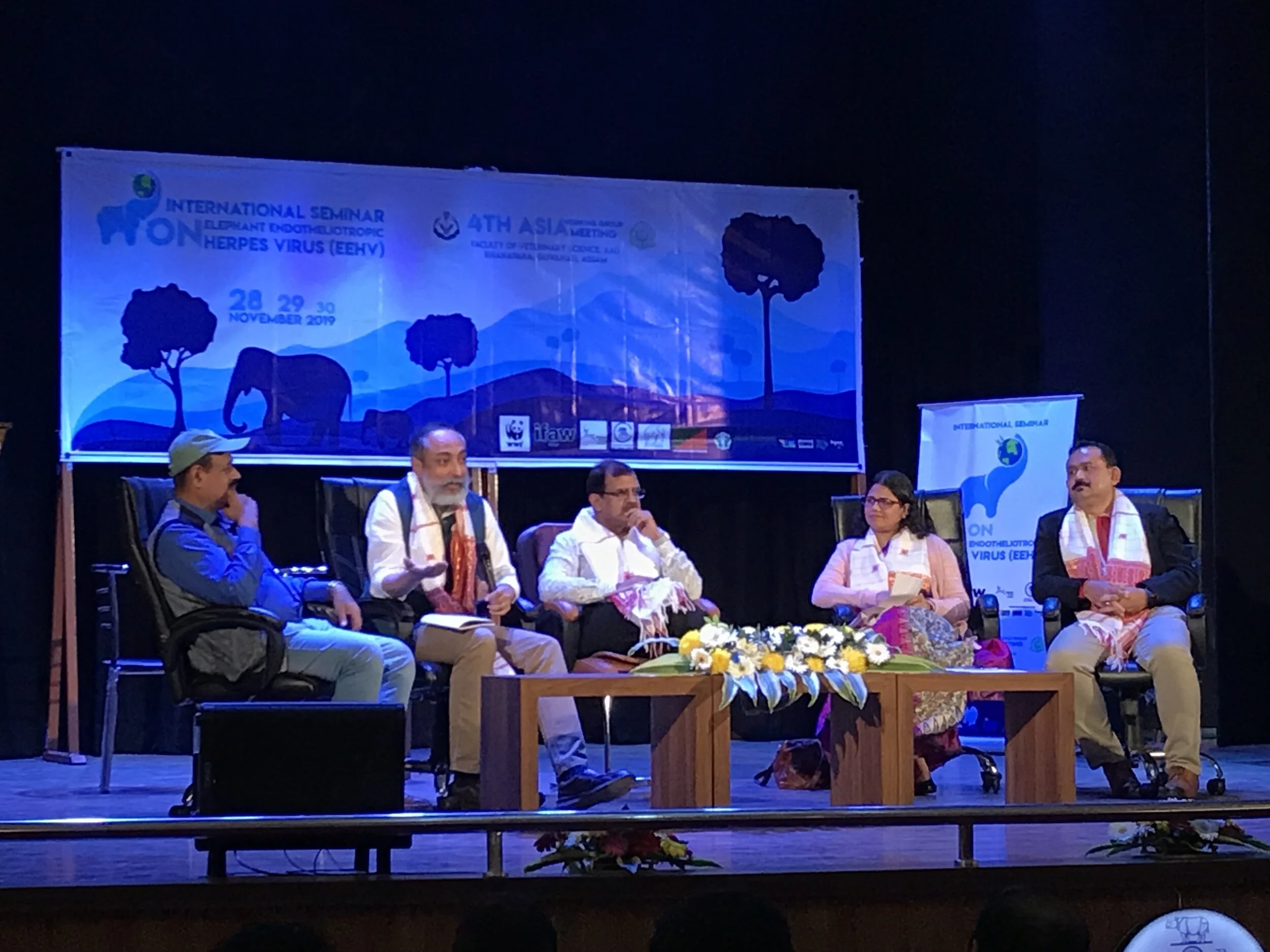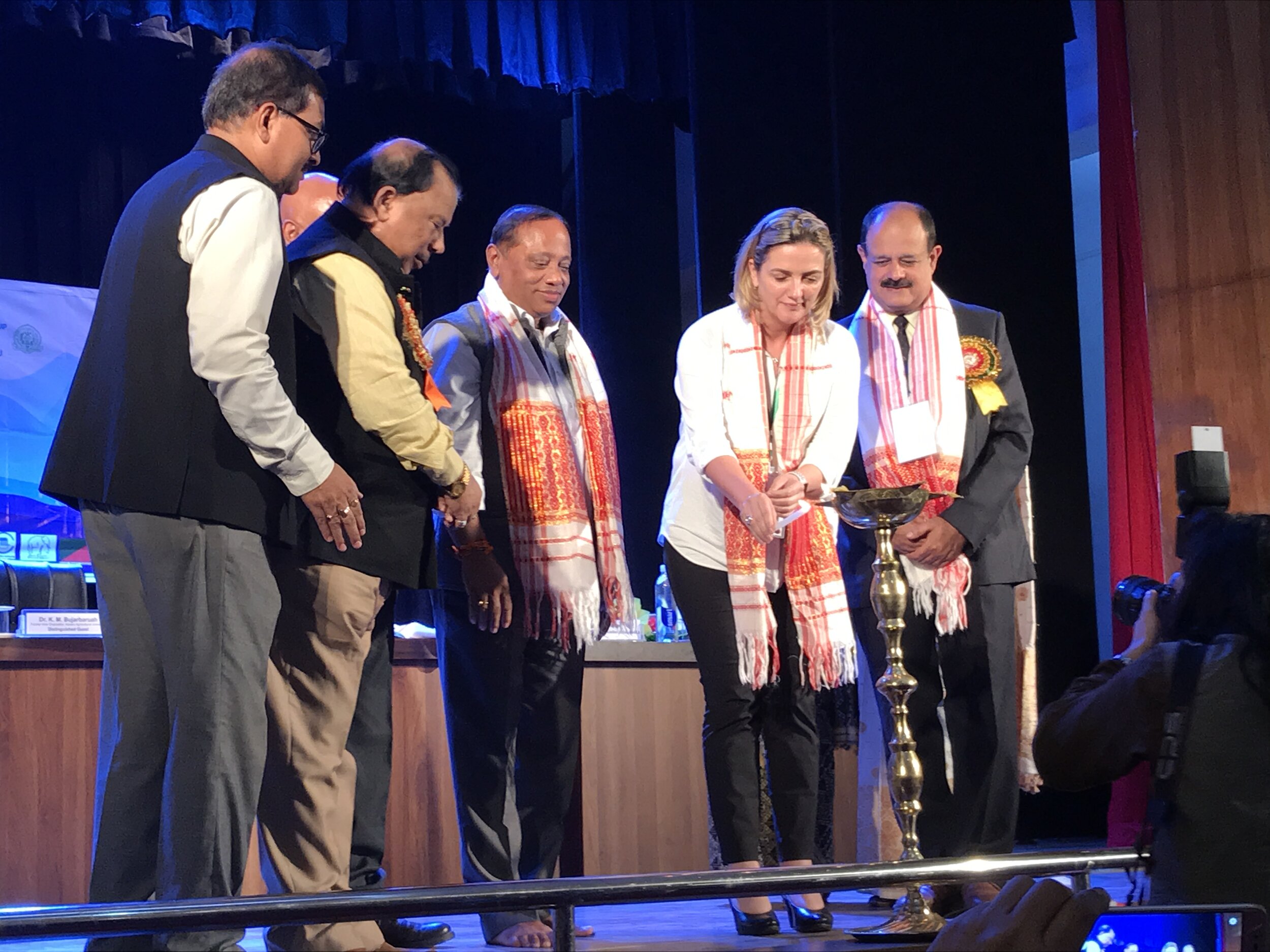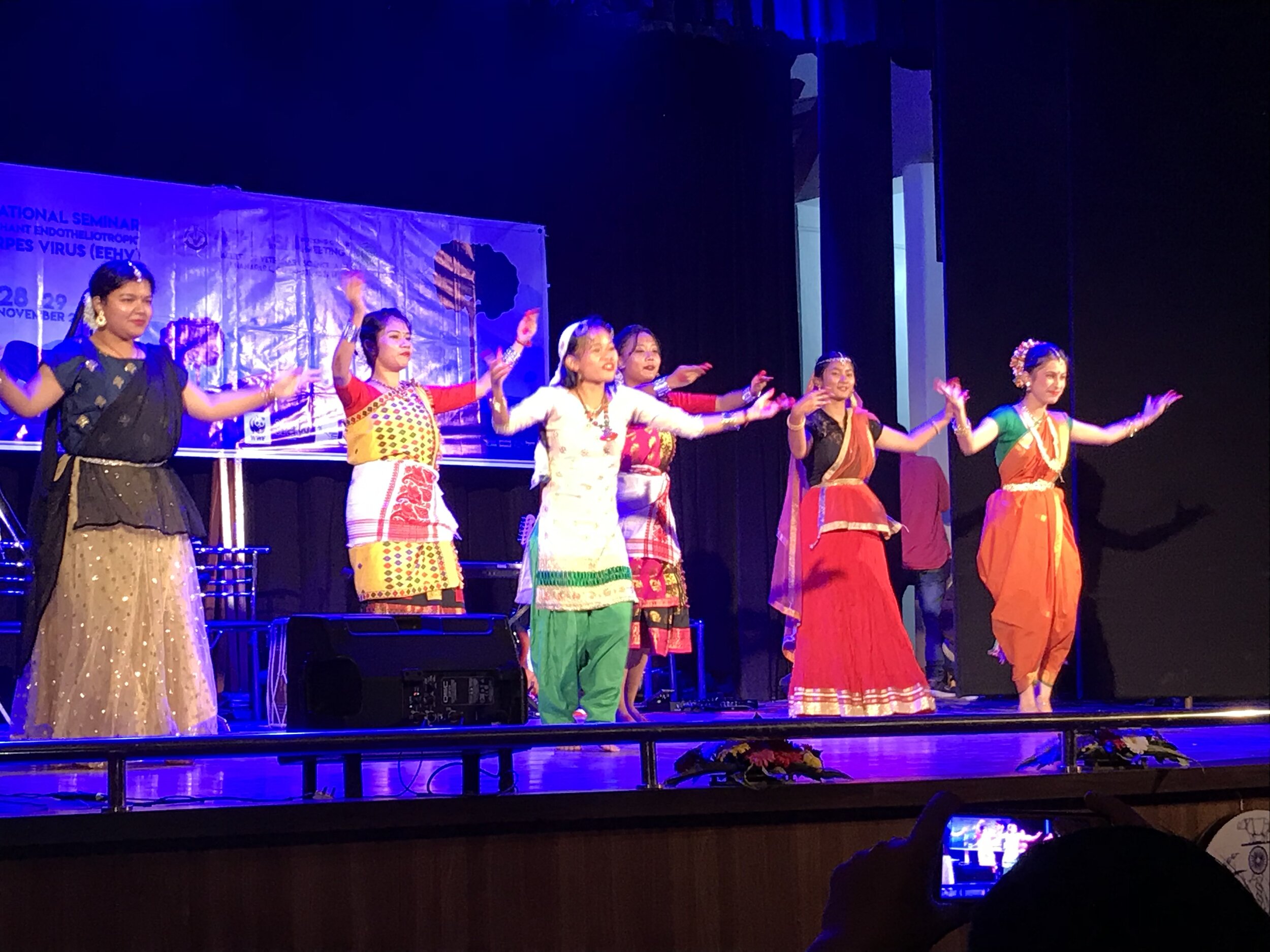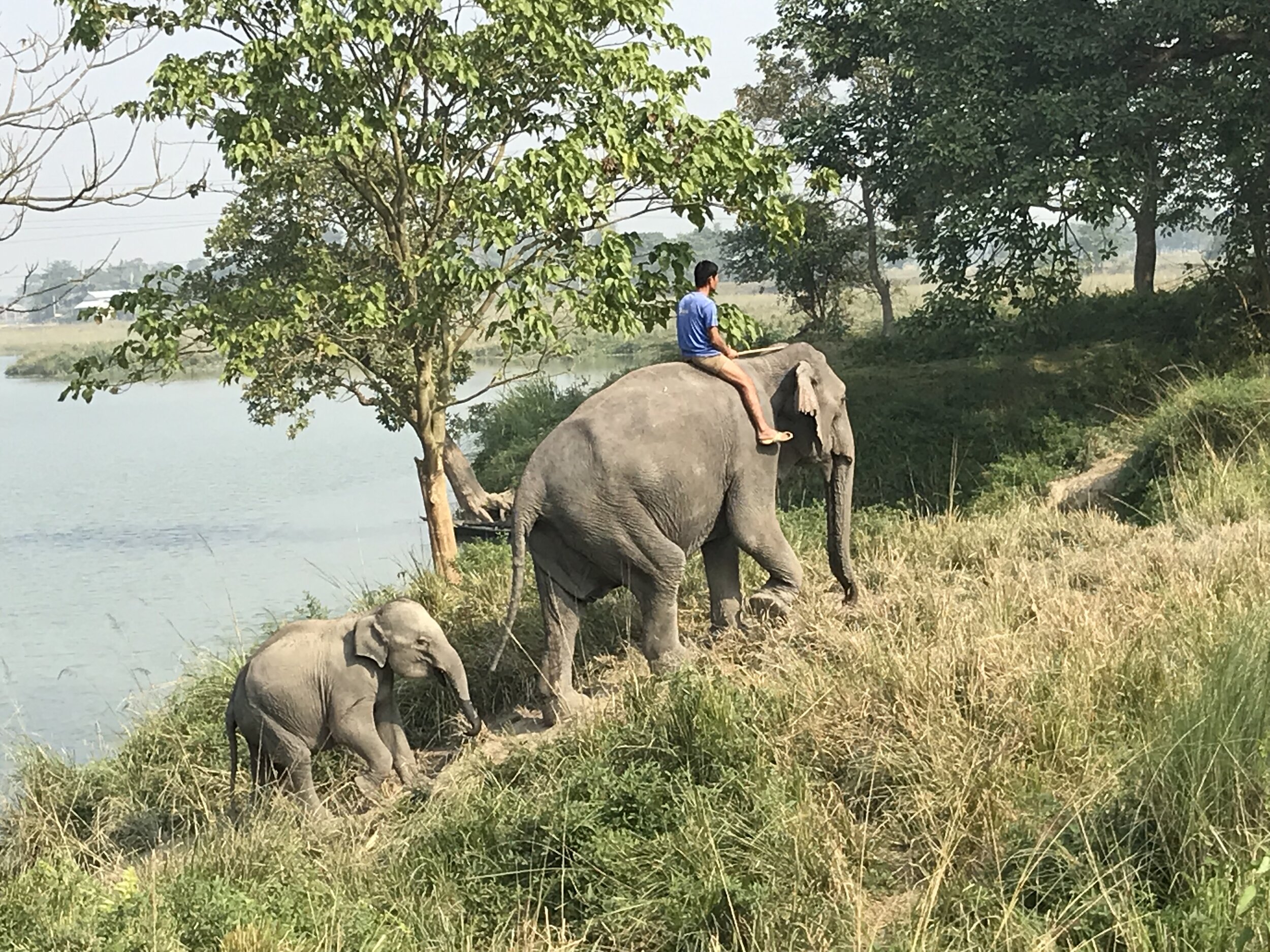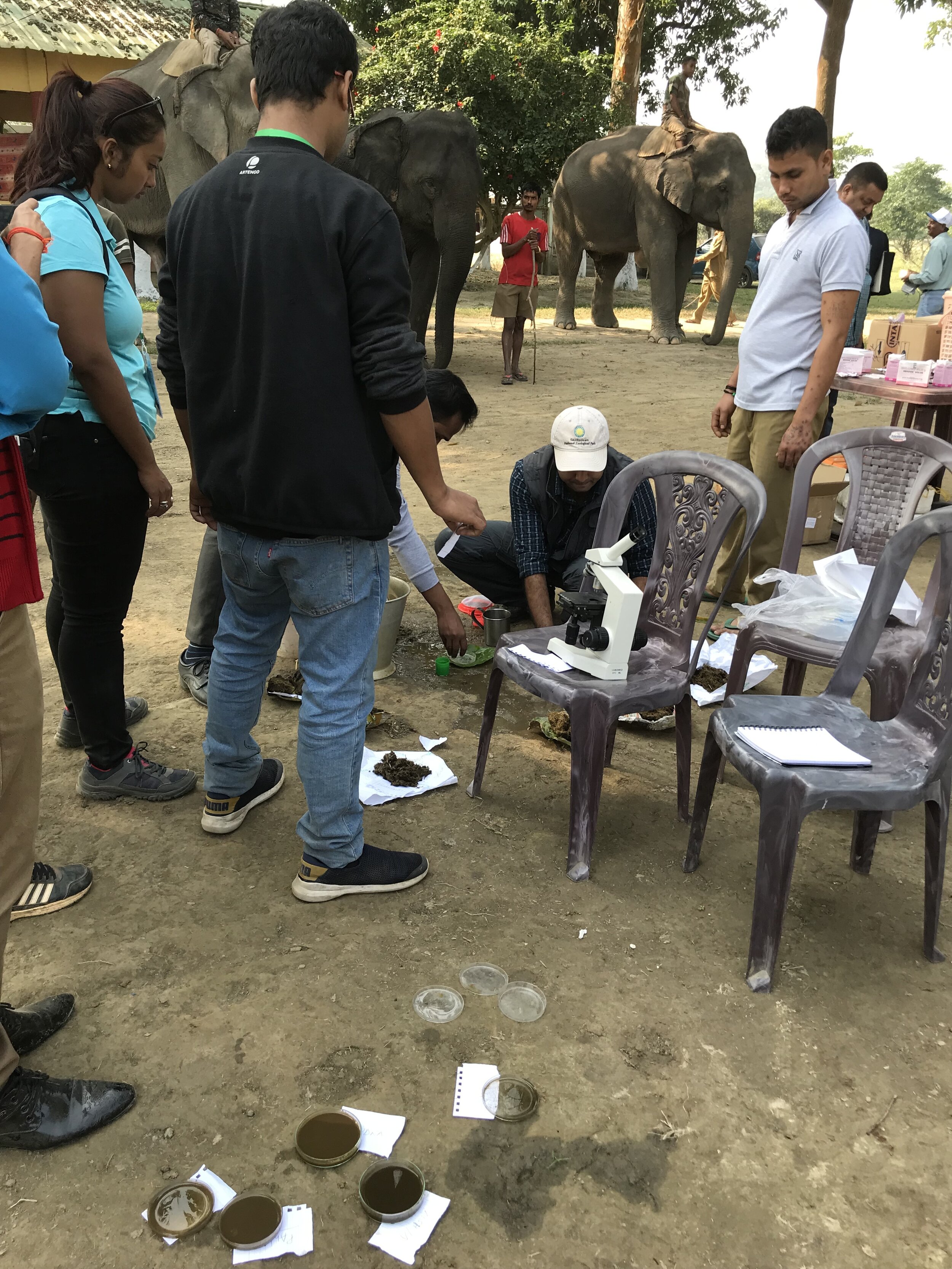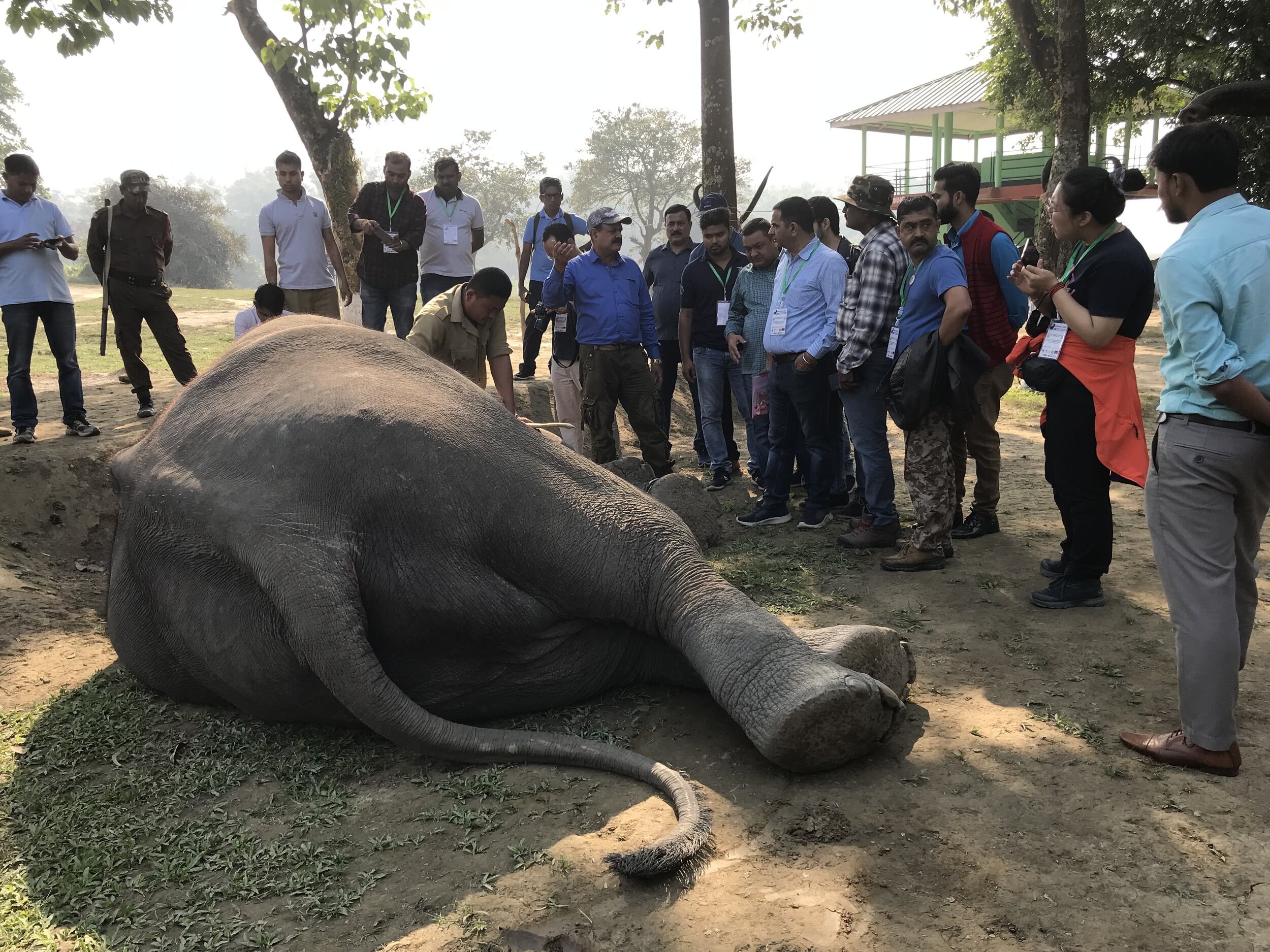International Seminar on Elephant Endotheliotropic Herpes Virus (EEHV)
4th Asia Working Group Meeting
Guwahati, Assam, India
Nov 28-30, 2019
EEHV is a serious and deadly threat facing the global elephant population both in captivity and in the wild specifically to the young. This has prompted the formation of working groups to focus on understanding this disease and working towards treatments and vaccines needed to help save the elephant population. In 2015 the 1st Asian Working Group was formed. This last November, the 4th Asian Working Group held an international seminar on EEHV in Guwahati, Assam, in northeastern India, home to 2/3 of India’s elephants.
AES has been a supporter of fighting EEHV and was proud to be one of the sponsors for this workshop organized by Dr.s Kushal Konwar Sarma of the Faculty of Veterinary Science , AAU Khanapara and Sonja Luz of Wildlife Reserves Singapore. There were representatives from all (but 2 : Sumatra and Cambodia) of the Asian elephant range countries and included presenters from Japan, China and Pakistan. AES also provided funding for three AES grant recipient veterinarians to present about EEHV in their respective countries: Dr. Amir Sadula (Nepal), Dr. Zaw Min Oo (Myanmar) and Dr. Vijitha Perera (Sri Lanka). Unfortunately AES President Linda Reifschneider was unable to attend the conference so AES Secretary Janet Dray represented AES. There was much for Janet to learn there about the projects and people that AES supports as well as the conditions, attitudes and culture differences among the many areas where Asian elephants reside.
The workshop organizers packed each of the three days full of activities that included allowing each region/country to present their status of EEHV and for international scientists to show their latest findings and recommendations on detecting and treating the disease. In addition, the Thailand Task Force presented their findings as well as the forms they use to collect data. One recommendation from the Assam workshop was for India to form its own Task Force.
Other activities included a panel discussion including the Forest Dept. and WWF on Human Elephant Conflict. This is a serious problem in Assam and emphasizes one of the different factors in considering elephant welfare that is not an issue for the Western world. The workshop also included several of Assam’s traditions through formal presentations, receiving a Gamosa (a typical woven cotton with embroidery), music and dance presentations.
The last day of the workshop was a field trip to Pobitora Wildlife Sanctuary where in addition to a jeep ride through the reserve to see wild Asian one-horned rhinos, Dr.s Kushal and Parikhit taught the graduate veterinarians about treating elephants at the mahout camp there, including foot car, feces analysis, injections, and reviewing the elephants medical records.
Not only did this workshop fulfill its mission of gathering veterinarians and researchers around Asia (as well as the UK and the USA) to share information on EEHV, it included an incredible place to visit, an amazing opportunity to connect with AES grant recipients from India, Sri Lanka, Laos, Myanmar, Thailand and Nepal, and an invaluable experience regarding Asian elephants living in their native ranges.

